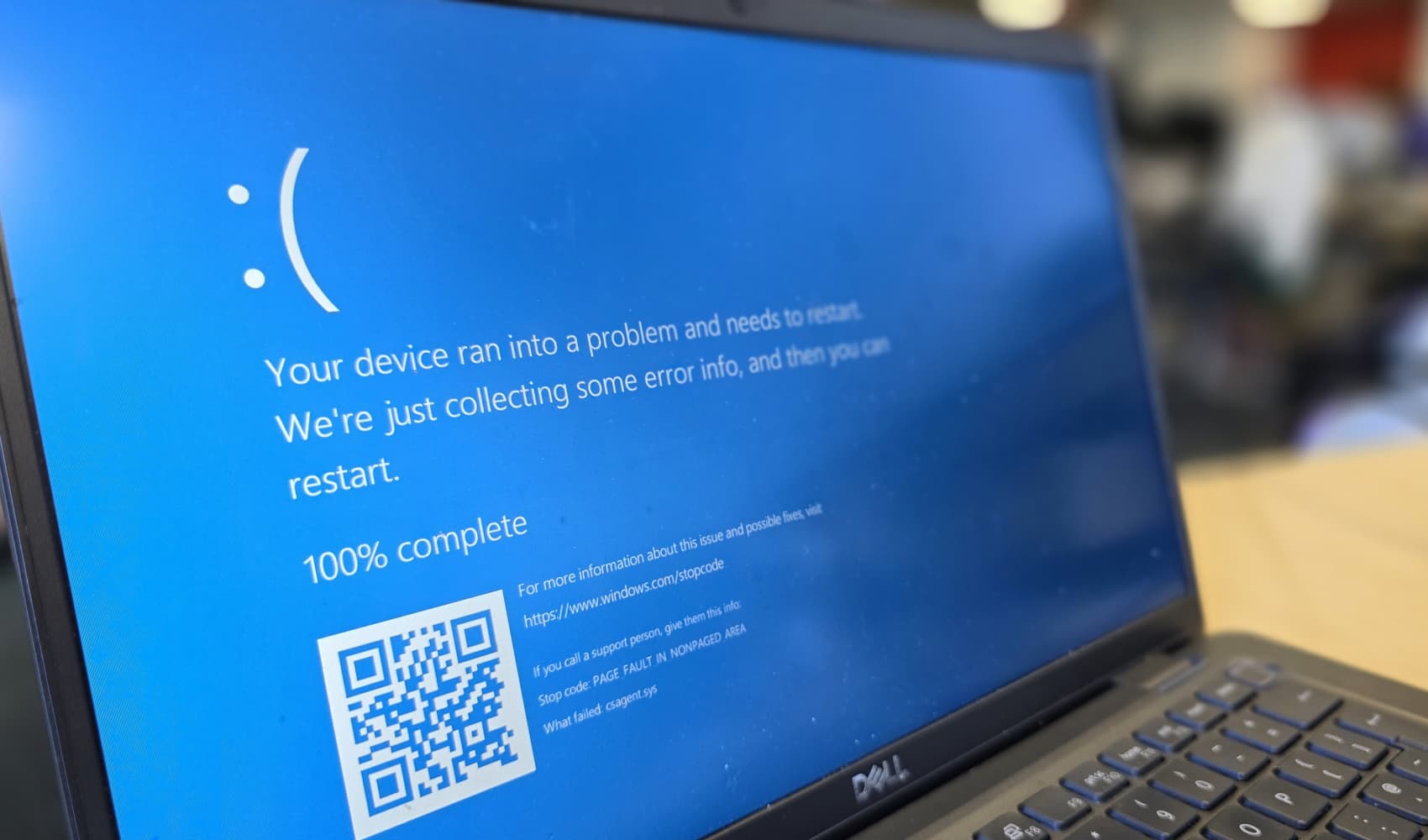Days after the biggest IT outage in history, the Crowdstrike outage that affected Microsoft systems continues to create problems for tech users, including at San Diego International Airport where hundreds of flights were canceled or delayed this week.
When the situation began Friday, air traffic in the skies above the United States and elsewhere around the globe thinned to the point of near-clear skies.
A check of arrivals and departures at SAN on Monday and Tuesday highlighted the incident's persistence.
About 75 flights were delayed or canceled by 10 a.m. Tuesday, a good indication that delays could stretch through the day as the did Monday and the days prior. By day's end Monday, nearly 245 flights were delayed and about 2 dozen were canceled, according to the flight tracking tool FlightAware.
Get top local stories in San Diego delivered to you every morning. >Sign up for NBC San Diego's News Headlines newsletter.
While it's not clear how many of those planes are involved in the IT outage, it's certain that some are: On Sunday, Delta tweeted out that as "we continue operational recovery, we apologize for the disruptions many customers are experiencing. Canceling a flight is always a last resort & not taken lightly. We take seriously the trust placed in us to deliver the reliability customers have come to expect from Delta."
On Monday, the U.S. Department of Transportation's Office of Aviation Consumer Protection said it was investigating Delta, which was hit especially hard by the outage.
The DOT cited widespread flight disruptions and customer service failures in which Delta did not uphold commitments to its passengers, it said. The agency also said the investigation will evolve as the DOT processes a "high volume" of customer complaints.
Delta responded with the following statement: "Across our operation, Delta teams are working tirelessly to care for and make it right for customers impacted by delays and cancellations as we work to restore the reliable, on-time service they have come to expect from Delta."
The airline was experiencing up to 30 flight delays each day since the outage at the San Diego airport, according to FlightAware.
A lengthy statement posted on Delta's X platform said the airline would cover eligible expenses for those impactedthrough meal vouchers, hotel accommodations where available & ground transportation. Details on eligibility and reimbursement can be found here.
Meanwhile, Southwest representative Chris Perry said Crowdstrike had little to do with Monday's disruption:
Southwest felt little effects from the outage that disrupted other airlines, industries, etc.
Not sure how many of the delays across all carriers at SAN you’re seeing are related to Southwest … but the figure you reference indicates benign, normal – albeit mildly inconveniencing, for which we apologize – bumps in an operational day that features more than 4,440 flights across our system, including nearly 110 departures at SAN.
The World's Biggest IT Outage
Southwest had about 87 delays Monday and 30, so far, on Tuesday morning.
Businesses from airlines to hospitals have been grappling with a faulty software update that caused technological havoc worldwide on Friday, and its repercussions continued through the weekend. The breadth of the outages highlighted the fragility of a digitized world dependent on a few providers for key computing services.
The outage was caused when the global cybersecurity company CrowdStrike sent out an update late Thursday, one that USD cybersecurity professor Nikolas Behar said was not ready to roll out.
“To be honest, I’m a little bit disappointed because CrowdStrike is one of the top cybersecurity companies and we would expect them to do better,” Behar told NBC 7 Responds on Friday.
The update caused what’s known as the "blue screen of death" on computers protected by CrowdStrike.
CrowdStrike is one of the largest cybersecurity firms in the U.S. and has a list of customers that includes more than half of the Fortune 500 companies as well as small and medium-sized businesses.
Following the outage, the company provided an initial fix through a software update. But many computers are expected to need hands-on work that could take days, if not longer, to complete.
The Associated Press contributed to this report — Ed.



